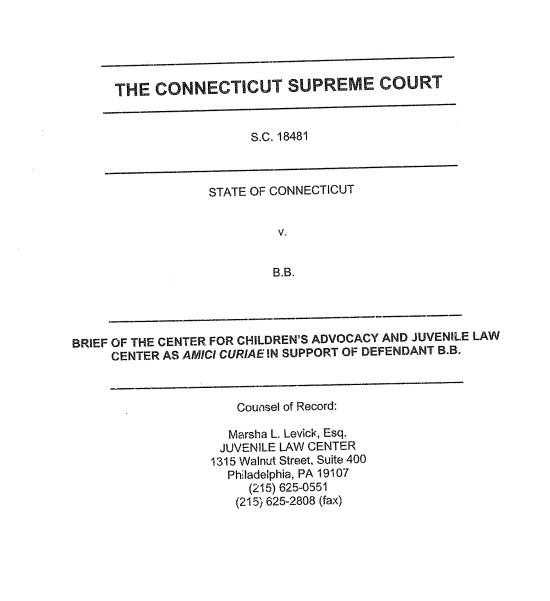
Summary of Argument
Although arising out of different statutory provisions, there is no significant distinction between a youthful offender and a juvenile offender in Connecticut. Youthful offenders are processed within the adult system but benefit from juvenile-like provisions protecting their confidentiality, including private proceedings under seal and closed to the public, detention separate from adult defendants, and term limits on commitment. C.G.S. §54-76. In fact the legislative intent was to create a replicated process to the juvenile system. Yet, the difference in possible outcomes in juvenile or youthful offender versus adult prosecution and sentencing is profound, resulting in life-altering consequences for youth treated as adults. Connecticut statute, C.G.S. §54-76(c), unlawfully delegates to the prosecutor the power to choose the forum in which youthful offenders are prosecuted without providing standards to guide that choice, without requiring a statement of reasons for that choice, and without affording an opportunity for review of that choice. As a matter of forum selection, not charging, prosecutorial discretion does not provide any special justification for the denial of process. The need for process is even greater when a prosecutor, who is inherently adversarial, rather than a judge, who is inherently neutral, chooses to prosecute the defendant as an adult rather than a youthful offender. The transfer statute that divested the court of jurisdiction over Defendant B.B. is constitutionally defective because it deprives youth of their vested liberty interest guaranteed them by C.G.S. §54-76 (original jurisdiction over youth ages sixteen and seventeen until prosecutors move for and judge orders transfer) without due process. For that reason, this Court must reverse his conviction.